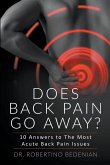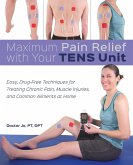This is the second volume in the series stimulated by/deriving from the work and study days of the Physiotherapy Pain Association. This volume is about some fundamental changes in practice which aim to prevent chronic incapacity from musculoskeletal pain problems. It is also about our relationships with our patients, and theirs with their pain and their families. As such, the information provided is essential to all professions involved in physical rehabilitation and prevention of chronic incapacity. When practice changes there is a necessary extension of traditional thinking into new territories and new skills to be taken on. In particular, all the chapters in this book underline the recognition that while musculoskeletal pain has a biomedical origin, there are also important psychosocial components that require management within a biopsychosocial framework. Authors provide background knowledge and practical guidance to help readers integrate the biopsychosocial model and biopsychosocial assessment into patient management. The material in this book is as important to the management of acute pain as it is to chronic pain states. Importantly, the book is not about categorising patients as having either real or not real pain. It represents a determined effort by all the authors to present clinicians with tools that will help them to better understand their patients; help prevent them becoming disabled, and help most to lead far more active and productive lives - no matter how complex the presentation. Volumes in the Topical Issues in Pain series are written by clinicians for clinicians. Each volume reviews the literature and presents best practice in a lively and understandable text. All clinicians will benefit from the straightforward advice. I look forward to this series and to the activities of the Physiotherapy Pain Association because they promise to revolutionise the morale, dignity and way of thinking of physiotherapists and thereby to affect everyone concerned with pain. Patrick Wall Physiotherapy 95(2):101-2
Bitte wählen Sie Ihr Anliegen aus.
Rechnungen
Retourenschein anfordern
Bestellstatus
Storno




